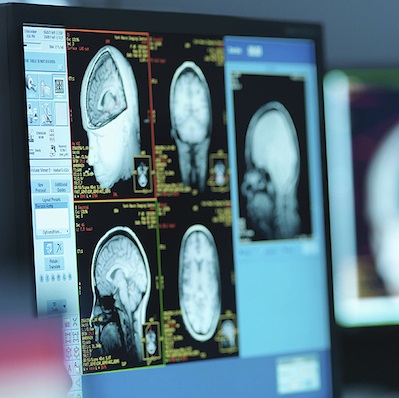How to Relieve Pain Without Prescription Medication

June 28, 2021
If you are dealing with chronic pain or pain after surgery, there are ways to get excellent pain relief that avoid the risk of pain medication addiction.
Chronic pain or lingering pain after surgery can be frustrating. It can even affect your mental health and prevent you from living a healthy life through sleep, healthy eating and exercising.
People often turn to prescription pain medication for relief. But anyone who takes prescription opioids or narcotics runs the risk of becoming addicted to them, says Sagar Parikh, M.D., interventional pain physician and director of the Center for Sports & Spine Medicine at JFK Johnson Rehabilitation Institute.
But there are ways to get excellent pain relief from chronic or acute pain that avoid that risk.
What Is Chronic Pain
Dr. Parikh defines chronic pain as pain that has continued for more than three months after the initial injury. By then, tissue healing should have occurred.
Multiple factors can cause chronic pain after an injury:
- Inadequate attention and treatment after the injury
- Continuing use of the damaged area because of work or other activity
- Weight issues
- Emotional issues dealing with the trauma of the pain
Other conditions, like cancer, can cause chronic pain that needs to be addressed to help the patient have the best possible quality of life.
How to Treat Chronic Pain
Depending on individual needs, Dr. Parikh may suggest one or more pain relief methods to reduce or eliminate the need for prescription opioids. For example:
- Interventional pain medication for some mechanical injuries like herniated discs (using imaging techniques to inject pain relief and repair medications directly into the injured area for long-term relief)
- Physical or occupational therapy, including aqua-therapy
- Complementary techniques such as yoga, bio-feedback and acupuncture
- Psychological therapy because emotional trauma can impact a person’s perception of pain
How to Treat Pain After Surgery
Traditionally, opioid medications have been prescribed following surgery to relieve the acute pain, especially in the first few days. Negin Griffith, M.D., a breast reconstruction surgeon, says patients undergoing many types of surgery, including orthopedic, head, neck and abdominal, can often benefit from nerve block medications that are administered by the surgeon or anesthesiologist. These medications provide better pain control and decrease the need for narcotics and their side effects.
Not relying on narcotic pain medication provides multiple benefits:
- Patients are able to be more physically active sooner after surgery
- Patients have less constipation
- Quality of sleep after surgery can be improved
- Patients can return to activities like driving sooner
Depending on the medical situation, the surgeon can choose a nerve block that will work anywhere from a few hours to a few days. Once the block wears off, Dr. Griffith says most patients can get pain relief with non-narcotic pain relievers and muscle relaxers, allowing them to return to their normal activities like driving sooner while avoiding the potential of narcotic addiction. Speak with your surgeon about options for pain management to determine what’s best for you.
Stop Suffering
If you are dealing with pain, there is help if you will reach out for it. If fear of risking addiction has held you back from dealing with chronic pain or from having needed surgery, talk with your doctor about newer techniques for pain control that are safe and avoid narcotics.
Next Steps & Resources:
- Find a doctor near you that meets your needs
- Meet our sources: Sagar Parikh, M.D. and Negin Griffith, M.D. To make an appointment with Dr. Parikh, Dr. Griffith or another doctor near you, call 800-822-8905 or visit our website.
- 3 ways to fix neck and shoulder pain from working from home
The material provided through HealthU is intended to be used as general information only and should not replace the advice of your physician. Always consult your physician for individual care.
Knowing When (and How) to Check Your Heart Rate

Like a car's check-engine light, your vital signs can alert you when it's time to call an expert.

How to Beat Brain Fog
Brain fog can be caused by lack of sleep, increased stress, certain foods in your diet or, in some cases, a medication or medical condition. Regardless of the source of brain fog, here's how you can help combat it.

8 Possible Causes (and Treatments) for Your Dizziness
Research shows that dizziness, vertigo and balance problems affect about 15 percent of U.S. adults each year.